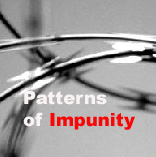|
"To us
all towns are one, all men our kin. |
| Home | Whats New | Trans State Nation | One World | Unfolding Consciousness | Comments | Search |
|
"To us
all towns are one, all men our kin. |
| Home | Whats New | Trans State Nation | One World | Unfolding Consciousness | Comments | Search |
Sri Lanka's Genocidal War - '95 to '01
The Asian Human Rights Commission in a statement on 30 September 1999 declared:
"We refer here to the statements made by the Sri Lankan Military Secretary and the armed forces spokesman Brigadier Sunil Tennakoon and the Editorial comments of the two issues of The Island (28 and 30 September 1999), a Sri Lankan newspaper well known for its racist propaganda.
There had been a great deal of misrepresentation regarding the statement issued by the Asian Human Rights Commission (AHRC) calling for UN intervention to stop gross abuses of human rights going on in the country during recent times, under the past and present regimes.
We stated that Sri Lanka comes under the description of countries having a record of gross human rights abuses, in terms of the speech of Kofi Annan, the Secretary General of the United Nations to 54th UN General Assembly.
AHRC called for the international community's reaction to massive human rights abuses in Sri Lanka during the last two decades need to be reviewed in terms of the claims for a significant policy shift in the international community.
The AHRC explained the factual basis for Sri Lanka coming under the category of countries grossly abusing human rights thus: Sri Lanka's record of massive and systematic human rights violations is well known and is well documented.
For the purpose of this statement we will not reproduce the details of this most gruesome record, which is much worse than in some countries that have received international attention and involvement.
For the purpose of records we wish to mention a few major aspects that deserve attention; there are over 30,000 state acknowledged disappearances in the country.
The government claimed that it will prosecute around 1,687 cases. (There is quite a lot of doubt in the country about the number of prosecutions mentioned and the quality of their investigations.) Anyway the number mentioned by the state indicates only a token response, and done mostly to pacify the international critics. Locally, the government's response to disappearances has only evoked cynicism and bitter criticism of its inaction and hypocrisy. The widely held opinion is that the government is unwilling and is incapable of taking any effective action against the military and the police.
There are dozens of mass graves spread through out the country both in the North and the South, and so far action has been taken regarding only one case, which is largely symbolic, lacking any satisfactory standards.
The war in the North claims hundreds of lives weekly and is caused both by the military as well as the LTTE. While casualty among the combatants is over 60,000 many thousands of ordinary people have also lost their lives, limbs or property due to this ongoing armed conflict.
According to an UNICEF statement issued in August 1998, about 50,000 children have been killed in the North and the East. There are over 167,000 internally displaced persons and about 300,000 refugees.
The normal life in the affected areas has been disrupted affecting the livelihood of the people, the education of children and health facilities to all. As a result of instability for nearly two decades, normal policing in all parts of the country has collapsed ....
Our reference to a high-tech war, in a low-tech country was that the main victims of such a war will be the ordinary civilians and that it can escalate a regional conflict in a region where there are states which are nuclear capable. Sri Lanka, which lags behind even in basic technological advances in the economy and administration, and which not even have the basic computerised systems for normal civil administration of the country, will not be able to avoid grave mistakes, which even the countries with such facilities cannot avoid. The issue is one of the civilian lives. People's lives matter!......
 ....The
Sri Lankan Foreign Minister, Lakshman Kadirgamar in his speech to
the United Nations failed to touch on the main issue of the debate,
which is the gross abuse of human rights by the State.
Does sovereignty give the right to a State to engage in gross abuse
of human rights? Can those States, which have failed to redress
gross abuse of human rights, say "we are sovereign, we do not need
to redress to gross abuse of human rights." Can a
state protect those who have committed crimes against humanity?
Former Chilean dictator General Augusto Pinochet tried to use the
same defence but failed.
Sri Lankan record of gross abuse of human rights is much worse
than that of the Chile during the rule of Pinochet....."
....The
Sri Lankan Foreign Minister, Lakshman Kadirgamar in his speech to
the United Nations failed to touch on the main issue of the debate,
which is the gross abuse of human rights by the State.
Does sovereignty give the right to a State to engage in gross abuse
of human rights? Can those States, which have failed to redress
gross abuse of human rights, say "we are sovereign, we do not need
to redress to gross abuse of human rights." Can a
state protect those who have committed crimes against humanity?
Former Chilean dictator General Augusto Pinochet tried to use the
same defence but failed.
Sri Lankan record of gross abuse of human rights is much worse
than that of the Chile during the rule of Pinochet....."
web: http://www.ahrchk.net/ Kowloon, Hong Kong SAR CHINA